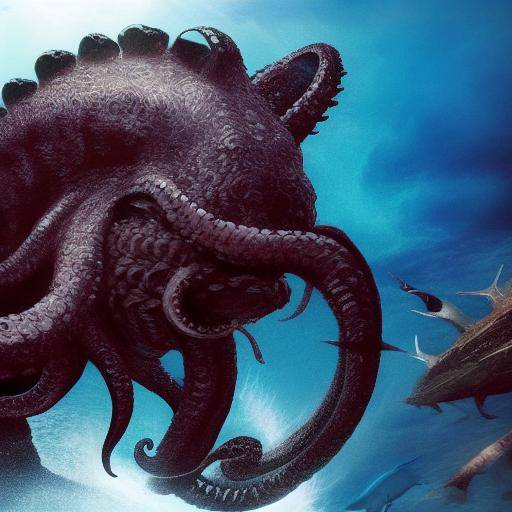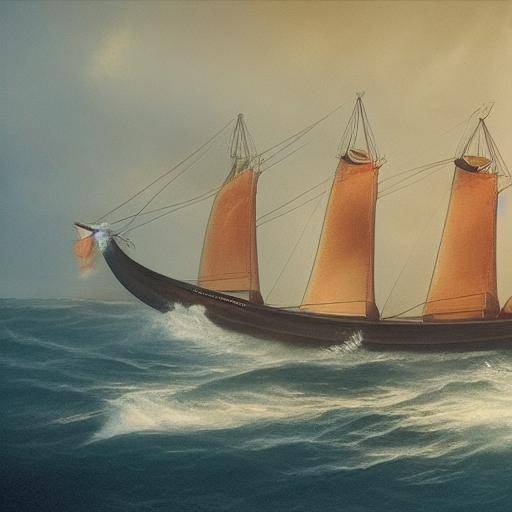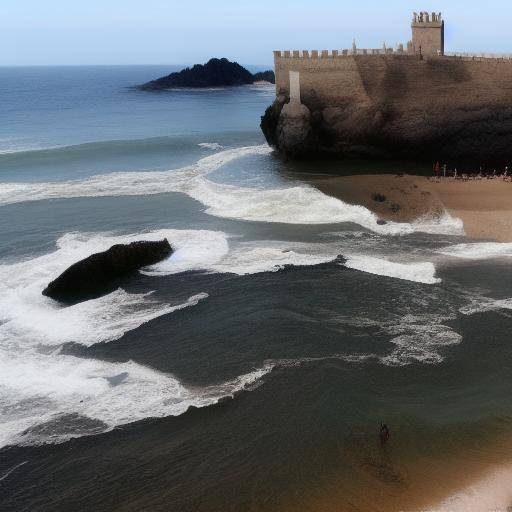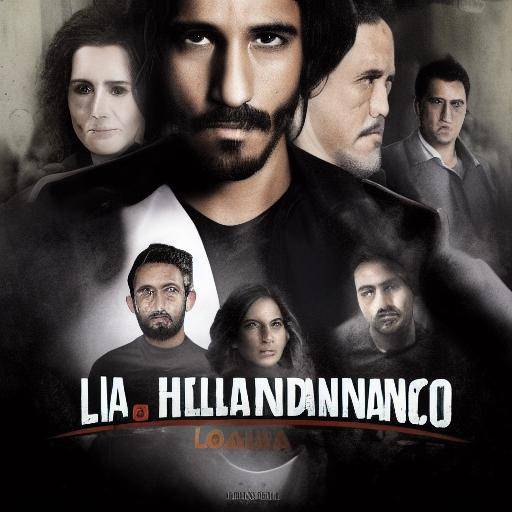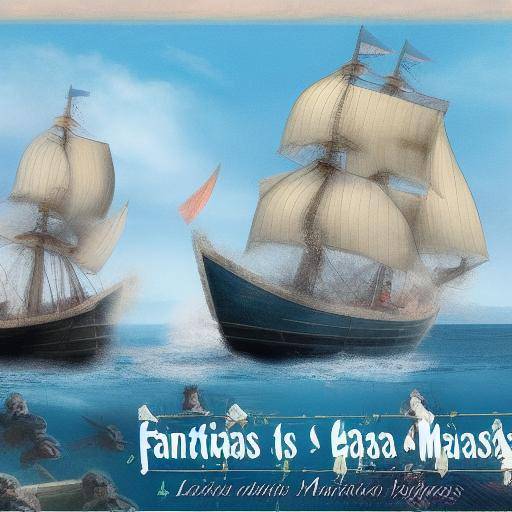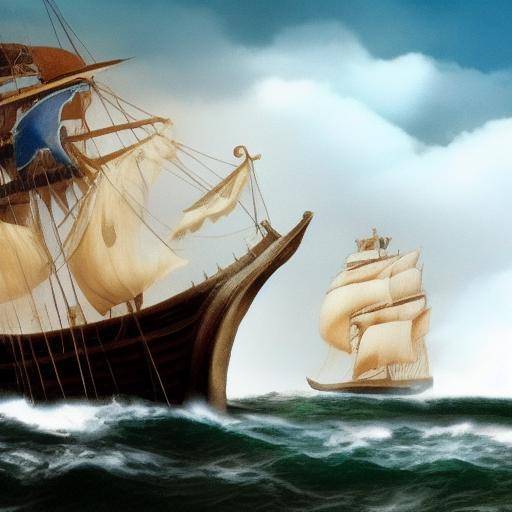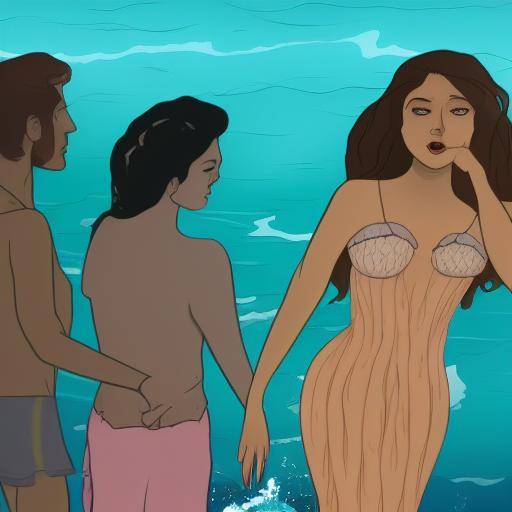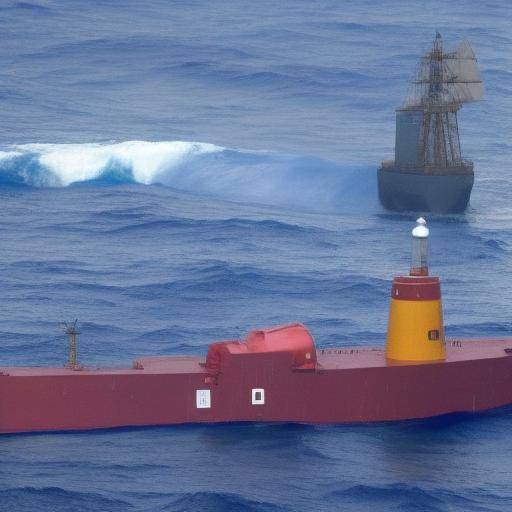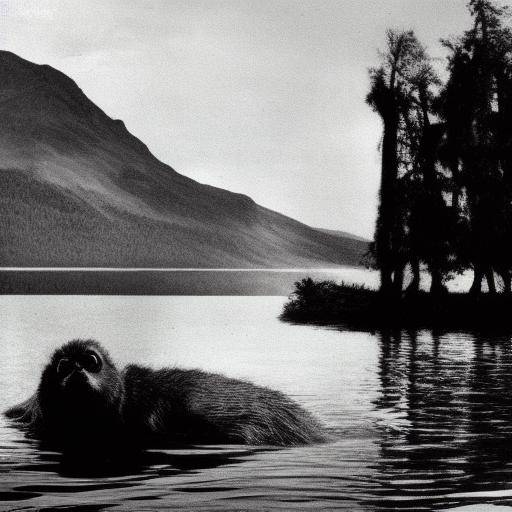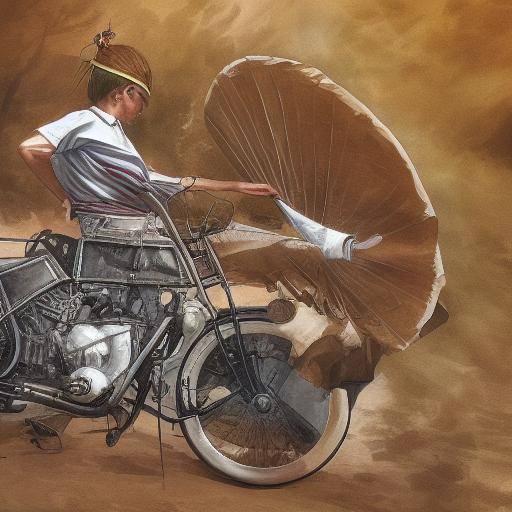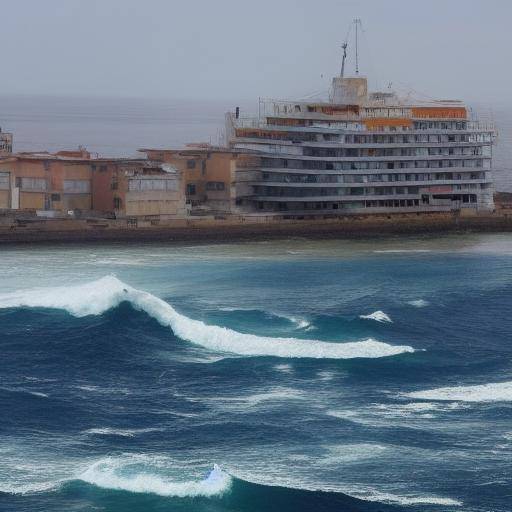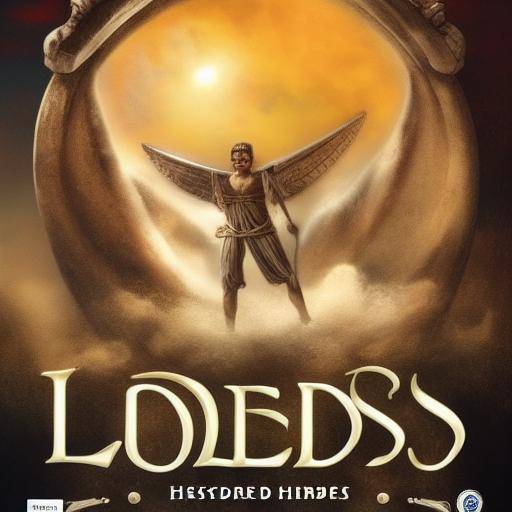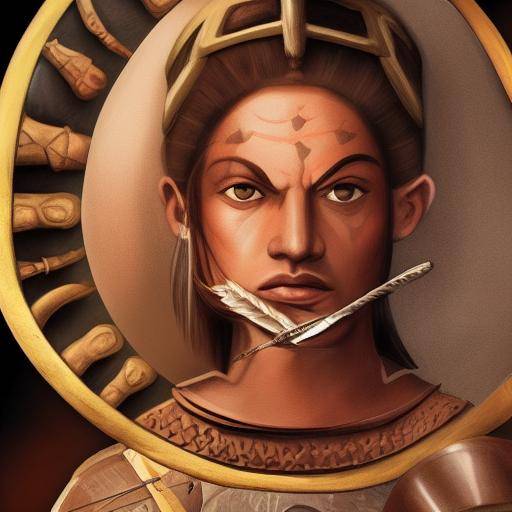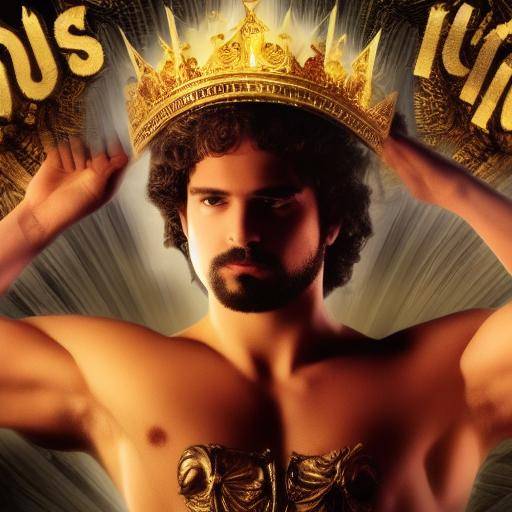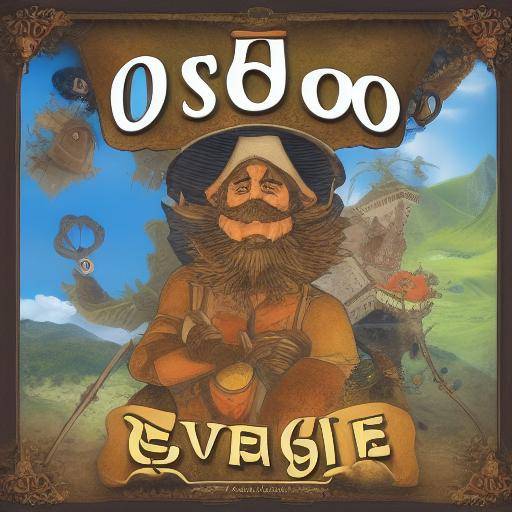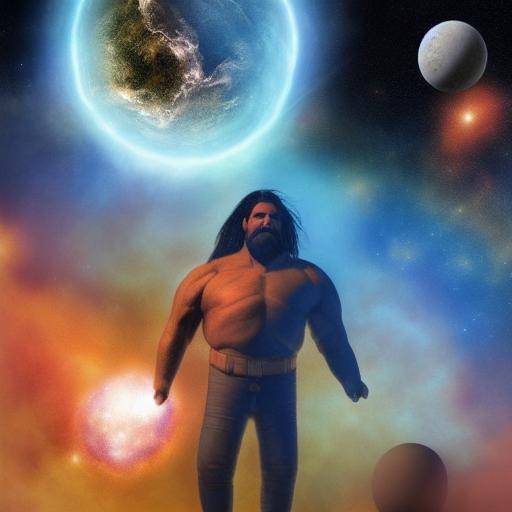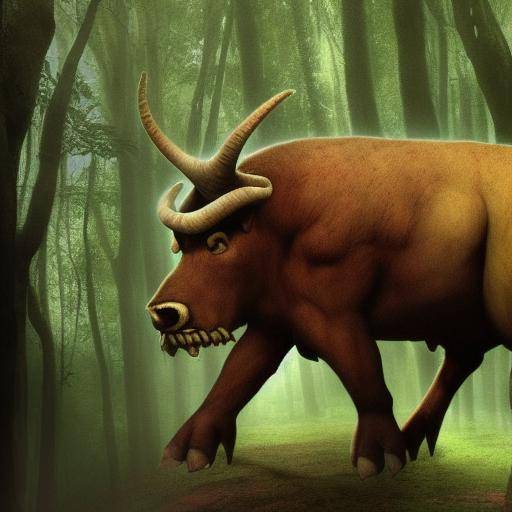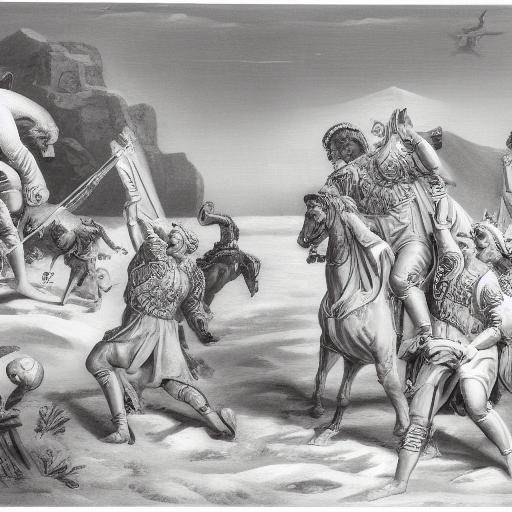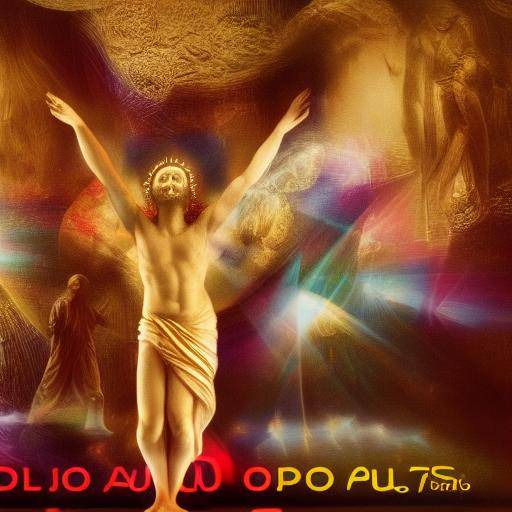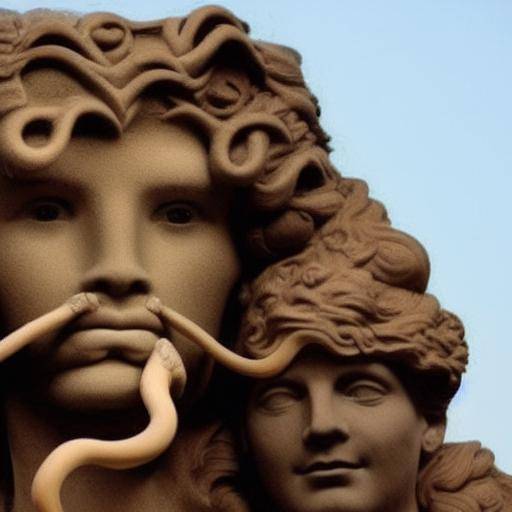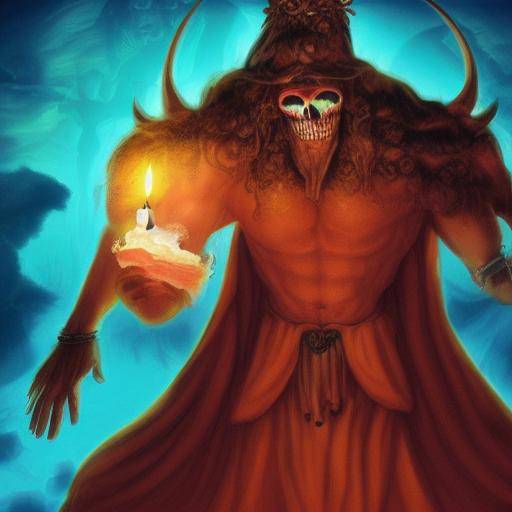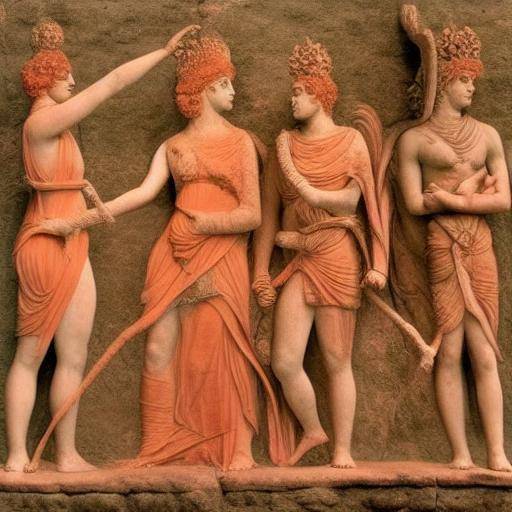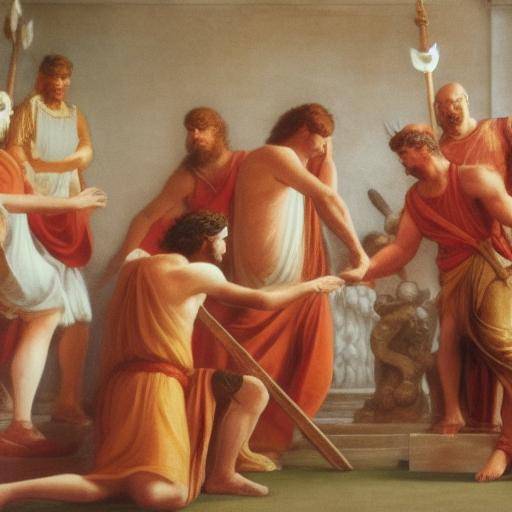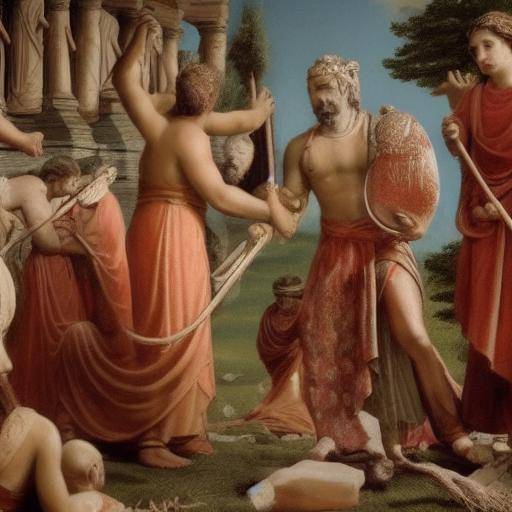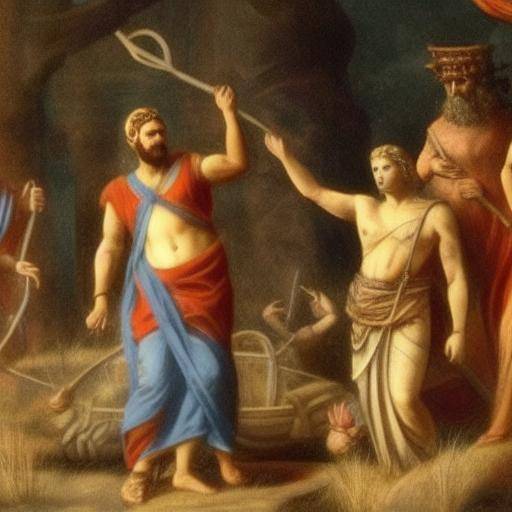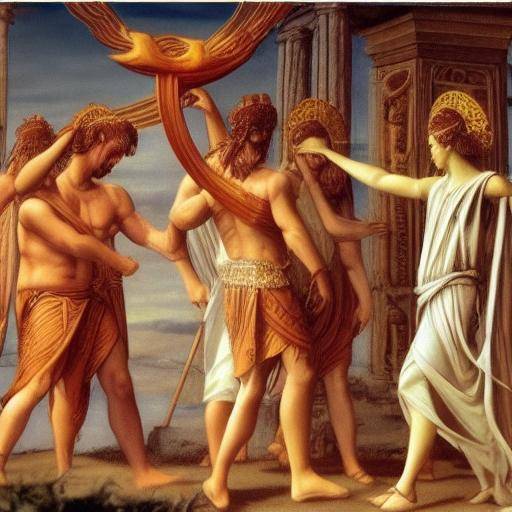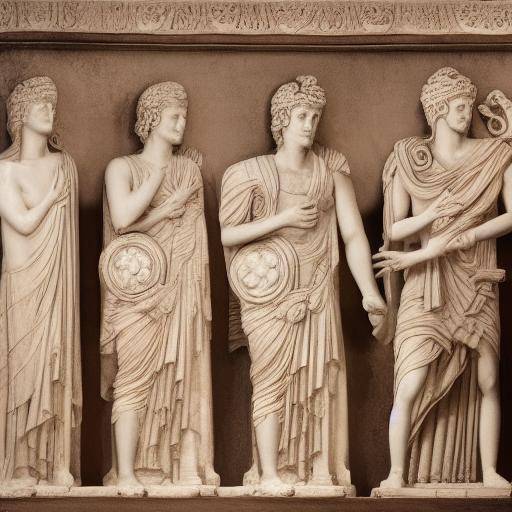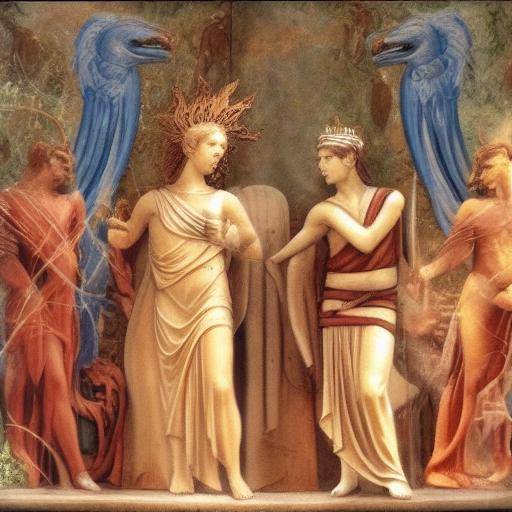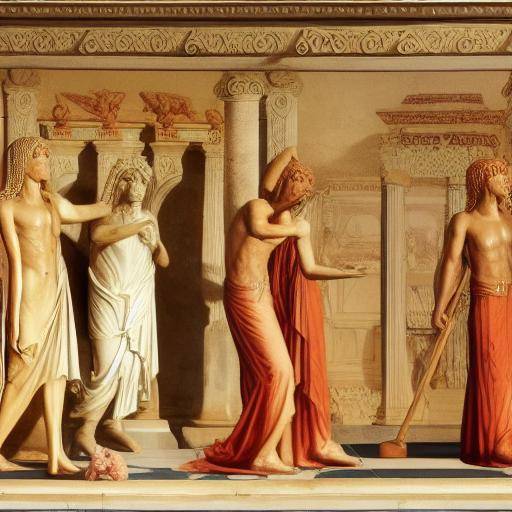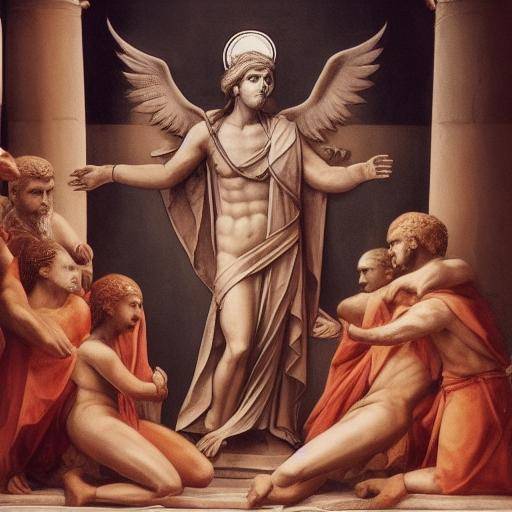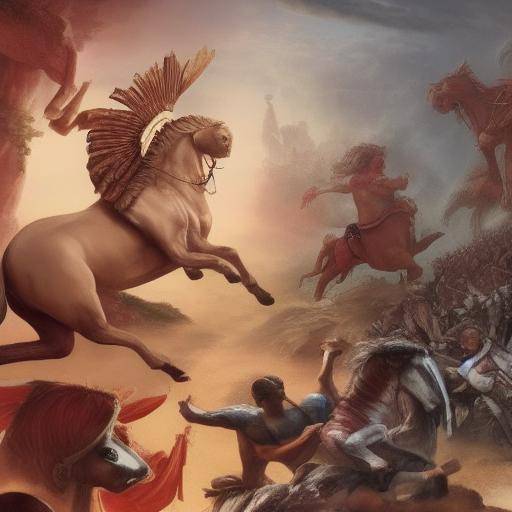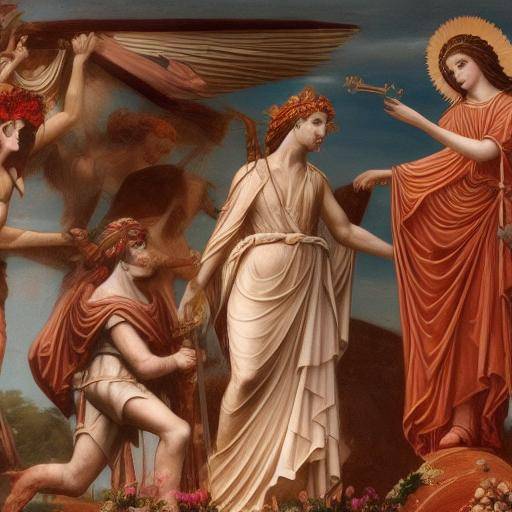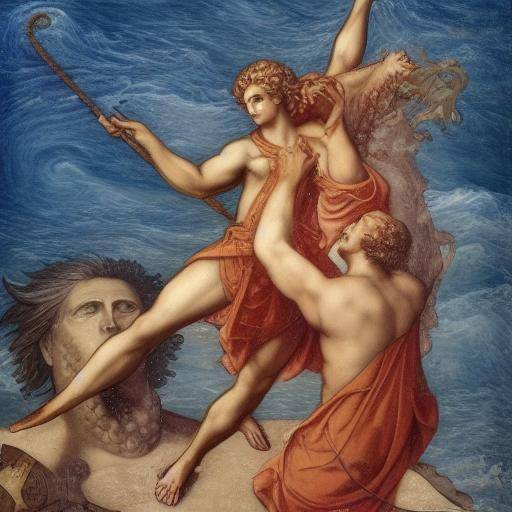
The sea has been an inexhaustible source of mystery and fascination for humanity throughout history. In Greek mythology, the ocean and its creatures have occupied a prominent place in the legends and beliefs of Hellenic culture. In this article, we will explore the various aspects related to the sea in Greek mythology, from the gods and sea monsters to legends and their relevance in Greek culture. Join us on this journey through the mythological waters of the Greek sea and discover the secrets that lie beneath its waves.
Greek mythology: Origins and context
Greek mythology is a vast universe of gods, heroes, creatures and epic stories that have endured over the centuries. In the heart of this rich mythological tradition are the divinities linked to the sea, whose power and mystery have captured the imagination of generations.
Origins and evolution of Greek mythology
Greek mythology has its roots in the ancient religious beliefs and practices of ancient Greece. Throughout the millennia, these stories have evolved, intertwining with cultural and symbolic aspects of Hellenic civilization.
Marine Gods in Greek mythology
The Greek pantheon is populated by a vast variety of gods and goddesses that influence the seas and oceans. Poseidon, the mighty god of the sea, is one of the most prominent deities, associated with the wrath of the sea and the protection of the sailors.
Marine Legends in Greek mythology
Marine legends play a crucial role in Greek mythology, weaving narratives of brave heroes, epic journeys and fantastic creatures that inhabit the depths of the sea.
Marine heroes and their prowess
The feats of heroes such as Ulysses and Jason, facing supernatural dangers and challenging the fury of the sea, are part of the legendary legacy of Greek mythology.
Marine monsters and mythical creatures
The Greek waters are populated by fearsome creatures: from the caribdis and scila to the bull of Crete and the kraken, each representing challenges and dangers that heroes should overcome in their maritime voyages.
Gods of the sea in Greek mythology
The gods and goddesses associated with the sea play fundamental roles in cosmogony and interactions with mortals.
The divine influence on the marine world
The intervention of the marine gods in the naval battles, in the navigation and in the lives of the marines has been a recurring theme in the Greek myths, revealing the complex relationship between the divine and the earthly.
Cult and rituals linked to the sea
The festivities in honour of the marine gods, the rituals of propitiation and religious practices related to the sea played a crucial role in the religious life of ancient Greece.
Conclusion and Frequently Asked Questions
Conclusion
The impact of Greek mythology on the representations of the sea, gods and marine legends has endured over time, leaving a legacy that continues to inspire the imagination and understanding of the natural and supernatural world. With each account, the ancient Greeks honored the immensity and unpredictability of the sea, as well as the intricate relationship between human beings and the marine world.
FAQs
- Who were the main deities related to the sea in Greek mythology?
- The main marine deities in Greek mythology included Poseidon, the sea god, his wife Anfitrite, and his son Triton, among others.
- What were the most famous marine legends in Greek mythology?
- Some of the most famous marine legends include the journey of Ulysses in the Odyssey, the adventures of Jason and the Argonautas, and the history of Theseus and the Minotaur.
- How were rituals celebrated in honor of the gods of the sea in ancient Greece?
- The rituals in honor of the gods of the sea included offerings, sacrifices and festivals such as the Poseidon, celebrated in various coastal cities to honor Poseidon.
- What role did sea monsters play in Greek stories?
- The sea monsters symbolized the dangers and challenges of the sea, serving as formidable adversaries for the heroes in their journeys and adventures.
- What symbolizes the sea in Greek mythology and how it is reflected in contemporary culture?
- The sea symbolizes the immensity, mystery and unpredictability of nature. In contemporary culture, he continues to inspire literature, art and cinema, reflecting his continued influence.
- What is the legacy of Greek mythology in modern representations of the sea and its deities?
- Greek mythology has left a lasting legacy in the modern representations of the sea and its deities, influencing literary, artistic and cinematographic works, as well as philosophical and spiritual thinking.
With this dive in the depths of Greek mythology, we hope to have taken our readers on a fascinating journey through the gods and sea monsters that rise as eternal witnesses of the richness and complexity of the mythical Hellenic universe. May these legends continue to inflate wonder, inspiration and admiration for the mysteries of the sea.

